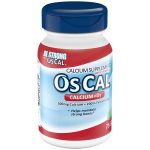Medazine: Uses, Benefits, Dosage, Side Effects, Interactions

What is Medazine good for?
Medazine is a common brand of cyclizine hydrochloride in South Africa, used to treat and prevent motion sickness and nausea or vomiting associated with various conditions. Some of the common uses of Medazine include:
1. Motion Sickness: Medazine is often used to prevent and treat symptoms of motion sickness, such as nausea, dizziness, and vomiting. It can be used for various modes of transportation, including air, sea, and road travel.
2. Nausea and Vomiting: Medazine may be prescribed to manage nausea and vomiting associated with various conditions, including post-operative nausea and vomiting, vertigo, and inner ear disorders.
3. Vestibular Disorders: Medazine can be used to alleviate symptoms of vestibular disorders, including dizziness, vertigo, and imbalance caused by problems in the inner ear.
Medazine is available in different formulations, including tablets and syrup. This medication can provide several benefits when used as directed and under the guidance of a healthcare professional. Some potential benefits of Medazine include the prevention and treatment of motion sickness, the effective management of nausea and vomiting associated with various conditions, including post-operative nausea and vomiting, inner ear disorders, and vertigo.
How it works
Medazine works by blocking the effects of histamine, specifically the histamine H1 receptors in the body. It belongs to the class of medications called H1 receptor antagonists or antihistamines.
Histamine is a chemical released by the body in response to various triggers, such as allergies or motion sickness. It can cause symptoms like nausea, dizziness, vomiting, and increased production of stomach acid.
By blocking the histamine H1 receptors, Medazine prevents the binding of histamine to these receptors, thereby reducing or preventing the associated symptoms. This mechanism of action helps alleviate nausea, vomiting, and other symptoms associated with motion sickness and other conditions.
In addition to its antihistamine properties, Medazine also has some anticholinergic effects, which contribute to its ability to reduce nausea and vomiting. These effects help to decrease the activity of the vestibular system in the inner ear, which plays a role in balance and motion detection.
It’s important to note that Medazine’s precise mechanism of action may involve other factors as well, and its full effects are not completely understood.
How and when should I take Medazine?
The appropriate dosage of Medazine can vary depending on the specific condition being treated, the patient’s age, weight, and other individual factors. It is important to follow the instructions provided by your healthcare provider or the information on the medication label.
For motion sickness, the usual recommended dosage of cyclizine hydrochloride is:
• Adults and children over 12 years old: 50 mg taken one hour before travel. This may be repeated every 4 to 6 hours if needed, up to a maximum of 100 mg in 24 hours. Each 5ml of Medazine syrup contains 12.5 mg of cyclizine hydrochloride
For nausea and vomiting associated with other conditions, the dosage may vary. It is best to consult your healthcare provider for the appropriate dosage based on your specific needs.
It is essential to adhere to the prescribed dosage and not exceed the recommended limits to minimize the risk of side effects or adverse reactions. If you have any questions or concerns about the dosage of Medazine, we strongly recommend consulting with your healthcare provider or pharmacist for personalized advice.
How long does it take for Medazine to work?
The onset of action for Medazine can vary from person to person. Generally, it starts to take effect within 30 minutes to an hour after administration, but it may take longer in some cases.
It’s important to note that the exact timing can depend on various factors, including the individual’s metabolism, the dosage and formulation of the medication, and the specific condition being treated.
Can I take Medazine while pregnant?
Yes, Medazine is commonly used in treating morning sickness and it is considered to be a safe medicine to take while pregnant. However, the safety of using Medazine during pregnancy has not been fully established. While there is limited data available, cyclizine the active ingredient in Medazine has been assigned to pregnancy category A by the U.S. Food and Drug Administration (FDA), which means it has not been shown to cause harm to the fetus in animal studies or human studies.
It is always recommended to exercise caution during pregnancy and only use medication when the potential benefits outweigh the potential risks. Your healthcare provider will consider your individual circumstances, the severity of your symptoms, and the available alternatives before making a recommendation.
It’s important to discuss your symptoms and concerns with your healthcare provider to receive proper advice and guidance regarding the use of Medazine or any other medication during pregnancy.
Can I take Medazine while breastfeeding?
There is limited information available on the excretion of cyclizine into breast milk. The decision to use Medazine while breastfeeding should be made in consultation with a healthcare professional, considering the potential benefits and risks for both the mother and the infant.
Some factors to consider include the age and health of the infant, the dosage and duration of treatment, and alternative medications or non-pharmacological approaches that may be available.
Your healthcare provider can assess your individual circumstances and provide guidance on whether Medazine is safe to use while breastfeeding or recommend alternative options that are compatible with breastfeeding.
Medazine Side Effects
Medazine (cyclizine hydrochloride) can potentially cause side effects, although not everyone experiences them. Side effects may vary in frequency and severity. Common side effects of Medazine may include:
1. Drowsiness or sedation
2. Dry mouth
3. Blurred vision
4. Dizziness or lightheadedness
5. Constipation
6. Urinary retention (difficulty urinating)
7. Increased heart rate
8. Low blood pressure
9. Nausea or stomach discomfort
These are not the only possible side effects, and others may occur. If you experience any unusual or persistent side effects while taking Medazine, it is important to contact your healthcare provider for further evaluation.
In rare cases, some individuals may have an allergic reaction to Medazine. Seek immediate medical attention if you experience symptoms such as rash, itching, swelling (particularly of the face, tongue, or throat), severe dizziness, or difficulty breathing.
It is worth noting that this is not an exhaustive list of side effects, and different individuals may react differently to the medication. It’s important to follow the prescribed dosage and inform your healthcare provider about any side effects or concerns you may have. They will be able to provide further guidance and assistance based on your specific situation.
Medazine Interactions
Medazine may interact with other medications, substances, or medical conditions. It’s important to inform your healthcare provider about all the medications, supplements, and herbal products you are taking or plan to take. Here are some potential interactions associated with Medazine:
1. Central Nervous System Depressants: Medazine can enhance the sedative effects of other medications or substances that depress the central nervous system, such as alcohol, sedatives, tranquilizers, and certain pain medications. Combining these substances can increase drowsiness, dizziness, and impair cognitive function. It’s important to use caution and follow your healthcare provider’s instructions.
2. Monoamine Oxidase Inhibitors (MAOIs): Medazine should not be used concurrently or within 2 weeks of discontinuing MAOIs. This combination can lead to severe reactions, including hypertensive crisis, which is a sudden and dangerous increase in blood pressure.
3. Anticholinergic Medications: Medazine has anticholinergic effects, so combining it with other medications that have similar properties, such as antihistamines, tricyclic antidepressants, or certain antipsychotics, can enhance the anticholinergic effects and increase the risk of side effects.
4. Sedating Antihistamines: Concurrent use of other sedating antihistamines with Medazine can potentiate the sedative effects and increase the risk of drowsiness and impaired coordination.
5. Other Medications: Medazine may interact with certain medications, including CNS stimulants, anticonvulsants, antiarrhythmics, anticoagulants, and certain antifungal agents. It’s important to discuss all your medications with your healthcare provider to identify potential interactions.
These are not all possible interactions, and there may be others. It is important to disclose your complete medical history, including any pre-existing medical conditions or allergies, to your healthcare provider to minimize the risk of adverse interactions.





